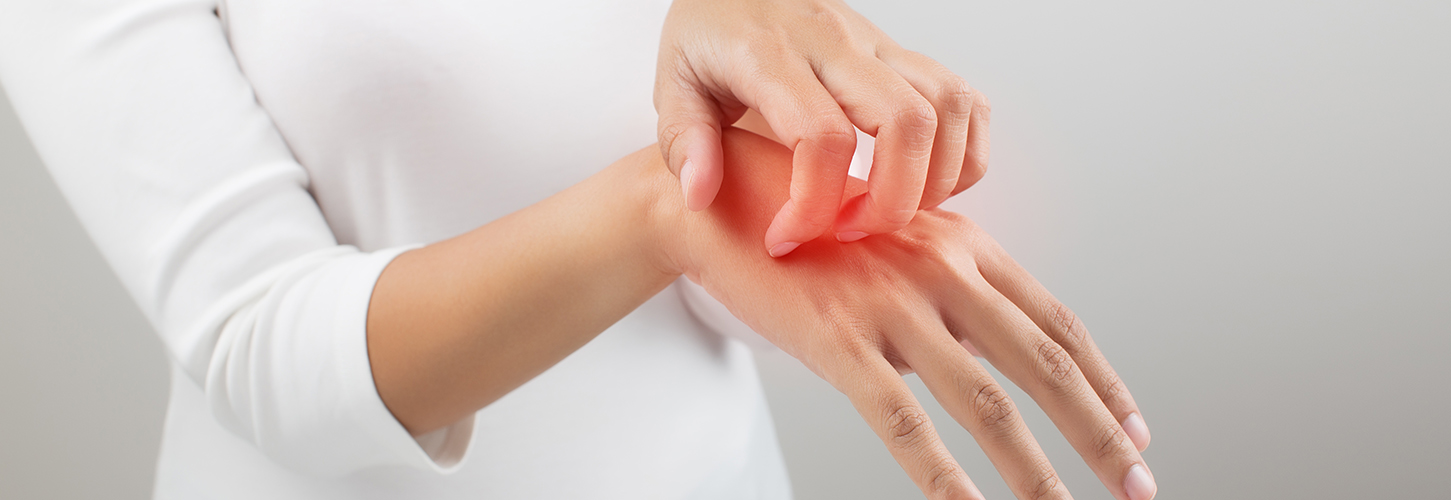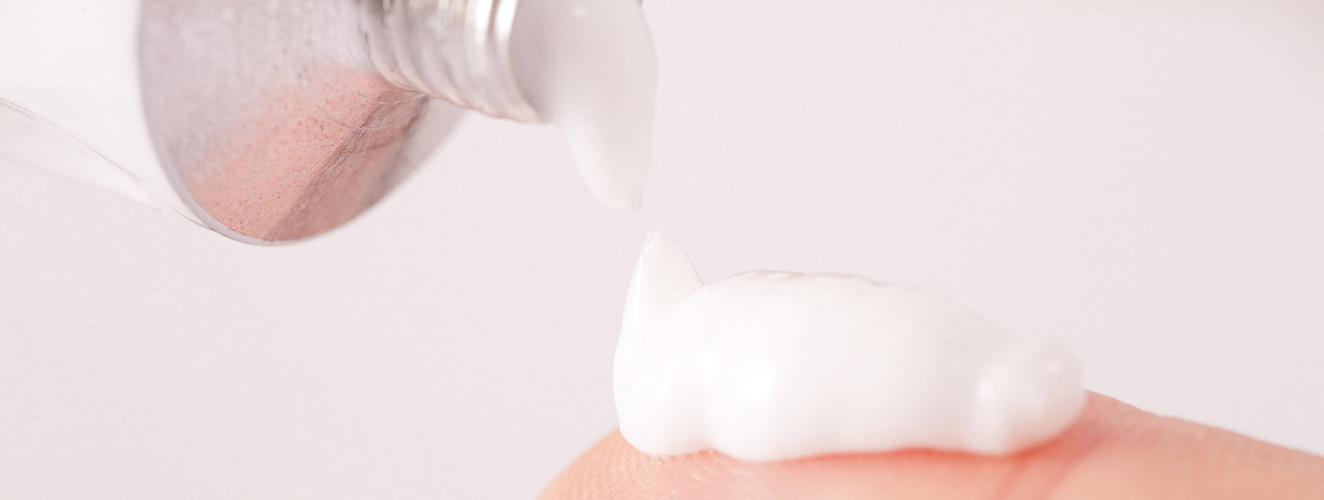
Managing skin conditions
Each year, 54 per cent of the population are affected by skin conditions such as eczema, acne, psoriasis and skin cancer.1 The impact of these conditions is wide ranging due to significant secondary effects, such as self confidence issues, mental health problems and sleep disturbance.
Skin conditions are the most common reason that people visit their GP with a new condition.2 With reduced access to GPs during the COVID-19 pandemic, alongside restricted prescribing of some skin products, you may encounter more customers asking for advice.
Did you know?
Hand eczema is one of the most common reasons for disablement benefit in the UK.1 Increased handwashing due to COVID-19 can make hand eczema worse, so advise customers to moisturise their hands after washing and carry a pocket-sized tube of emollient to enable application throughout the day.
It is important to understand that many of these conditions cannot be cured; however, some can be managed effectively by adopting a regular, tailored skincare regime. It takes approximately 30 days for the epidermis (top layer of skin) to turn over once and up to three months for the full benefit of any products to be seen. Customers should be encouraged to continue any new treatment or regime for three months to see the full benefit.
Eczema3
Unfortunately, eczema cannot be cured and treatment focuses on managing flare ups by using emollients.
Customers should be encouraged to apply emollients at least three times a day and to use the greasiest, non-perfumed formulation that they are happy to use. Customers may use a number of different formulations depending on body area, e.g. greasy ointments on non-visible body parts, creams on arms and legs and lotions on the face.
People with eczema should avoid using soap and shower gel and use either an emollient as a soap substitute or a specially formulated product. It is no longer recommended that aqueous cream be used for this purpose.
Flare ups of eczema can be managed using corticosteroid creams. Mild steroids such as hydrocortisone and clobetasone are available over the counter (not suitable for use on the face or genitals) and stronger products are available on prescription.
You should refer customers to their GP if mild corticosteroids are unsuitable or have not controlled the flare up after seven days, or if there is a possibility that the eczema is infected. You should also encourage people who struggle to sleep or are experiencing psychological effects to speak to their GP.
Acne4
Acne can be classed as:
- Mild – mostly whiteheads and blackheads, with a few papules and pustules.
- Moderate – more widespread whiteheads and blackheads, with many papules and pustules.
- Severe – lots of large, painful papules, pustules, nodules or cysts; customers might also have some scarring.
Mild acne can be treated using creams and gels containing benzoyl peroxide or nicotinamide that are available over the counter.
Benzoyl peroxide works as an antiseptic to reduce the number of bacteria on the surface of the skin. It also helps to reduce the number of whiteheads and blackheads, and has an anti-inflammatory effect. However, it can be quite irritating to the skin, causing redness, peeling and dryness.
Nicotinamide is an anti-inflammatory that works to reduce the swelling and redness associated with acne. It also works to regulate the amount of sebum produced.5
Customers with moderate or severe acne should be referred to their GP.
Acne is not caused by poor hygiene but customers should be advised to keep their skin clean by removing make-up with a gentle cleanser and washing twice daily with water and/or an oil-free soap substitute. Acne treatments can be drying, so recommend that customers continue to moisturise. Products that are suitable for acne-prone skin will use terms such as non-comedogenic (doesn’t clog the pores) and will have a pH close to that of the skin.6
A number of acne treatments can cause photosensitivity (increased sensitivity to UV light). Customers should be encouraged to use a broad spectrum sunscreen of at least SPF 30 every day, even when cloudy. They should look for non-comedogenic sunscreens which won’t block the pores.

How to apply steroid creams
Steroid creams should be applied in “fingertip units”. One fingertip unit or FTU (steroid squeezed from the tube to cover the length of the index fingertip – about 1 inch) is sufficient to cover the same area of skin as two hands laid flat with the fingers together.
